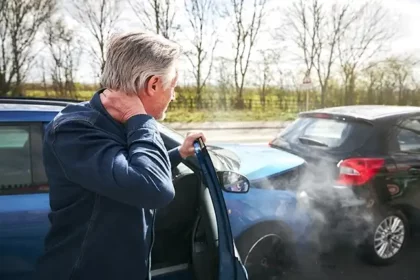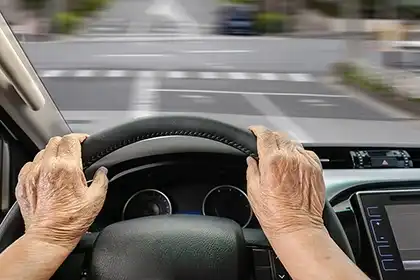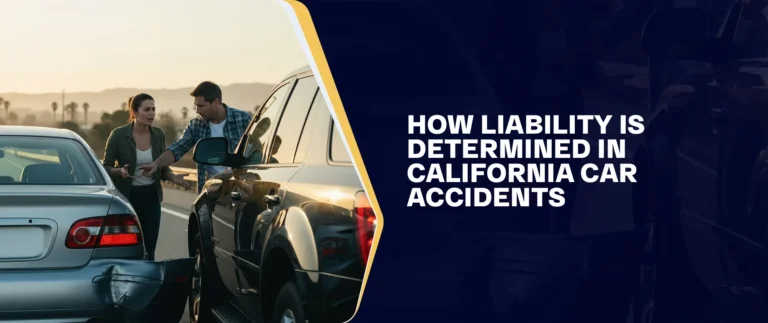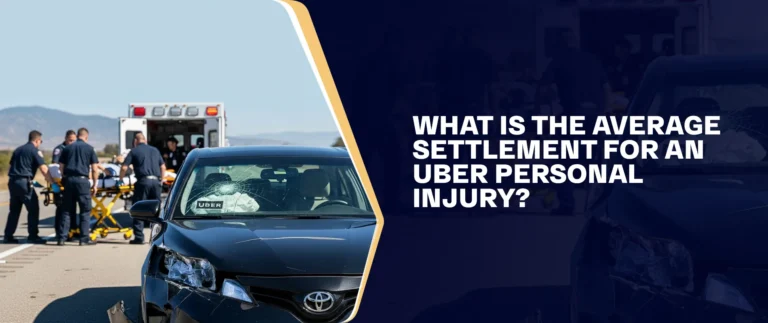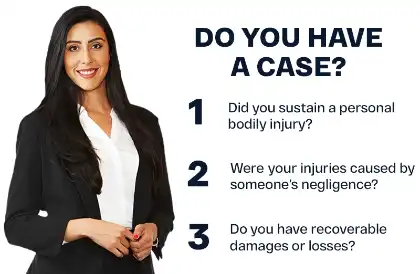Table of Contents
As an adult with aging parents, you’ll have to make several tough decisions regarding your mom and dad’s independence and safety. The decision to give up driving is one of those difficult discussions you need to have with them at some point. While you don’t want to restrict their freedom, age can bring medical conditions that might impair their driving ability and potentially cause an accident.
Under the law, adult children generally can’t be held responsible for the driving mistakes of their elderly parents. However, there are certain exceptions. Car owners may be held accountable if someone borrows their vehicle and the borrower causes a car accident. The same is true if your parents drove your car and caused a collision.
On the other hand, if your elderly parent was driving their own vehicle when the accident occurred, you may not be responsible in the eyes of the law. While this sounds straightforward, several legal concepts need to be considered.
If you need legal assistance, you may speak with our traffic accident lawyers at (888) 488-1391. They can help you better understand your legal options, and your first consultation is free.
Are Adult Children Liable For Their Elderly Parents’ Car Accident?
Adults, including senior citizens, are responsible for their actions behind the wheel. In certain situations, an adult child may be liable for an elderly driver’s car accident.
California’s doctrine of negligent entrustment hinges on knowledge. Before your elderly parents borrowed your car and caused an accident, did you know, or should you have known, that they were unfit to drive due to factors such as declining vision, cognitive issues, dependency disorders, or medical conditions? If you noticed red flags in your parents’ driving ability yet entrusted them with your car, a court might find you negligent.
Even if you weren’t negligent in entrusting the car, your insurance company might still get involved. Most car insurance policies provide liability coverage for accidents caused by permissive-use drivers (those with the owner’s permission to operate the vehicle). Depending on the specific coverage details, your policy could cover the costs associated with the accident.
What If Your Elderly Parent Were Driving Their Car During The Accident?
In general, you won’t be personally responsible for the damages suffered by the victims of the accident. However, the court may consider a fiduciary duty when determining liability. Fiduciary duty is a legal and ethical obligation where the fiduciary (the adult child) must act in the beneficiary’s (the elderly parent’s) best interests.
Here are two situations where this duty might translate into liability:
- You hold a power of attorney with specific authority over your parents’ driving, like the ability to revoke their license. Failing to act on concerns about their fitness to drive could lead to liability in an accident.
- You are a court-appointed guardian. You may be legally responsible for your ward’s (elderly parent’s) well-being, including making decisions about driving limitations. If you ignore signs about their declining driving skills and this oversight contributes to an accident, you might be liable for failing to fulfill your fiduciary duty.
Does California Have Laws About Being Too Old To Drive?
California does not have a legal age limit for driving. Nonetheless, older drivers who wish to keep their licenses must meet specific requirements set by the California Department of Motor Vehicles (DMV). These include the following:
- Renew their driver’s license in person unless the DMV permits otherwise.
- Pass the DMV’s knowledge and vision tests. Even if they fail, they may still be eligible for a temporary driver’s license.
- Allow the DMV to conduct unsafe driver investigations on them as per the request of family members or others.
- Inform the DMV of any diseases that might make driving risky, such as Alzheimer’s disease.
The DMV may also impose these restrictions on elderly drivers:
- Prohibit them from driving at night.
- Restrict them from driving at certain times of the day, i.e., morning or afternoon rush hours.
- Require them to use eyeglasses or contact lenses whenever driving.
- Restrict them from driving on highways or in some high-traffic regions.
- Require them to add an extra right-side mirror.
- Impose seat modifications to ensure they maintain proper driving position at all times.
When Is The Right Time To Prohibit Elderly Parents From Driving?
There are indicators to prove that driving could already be risky for them and everyone around them. If you observe the following in your elderly parents, you may need to consider preventing them from driving:
- Driving with less confidence.
- Needing help with reading traffic signs and signals.
- Switching lanes without signaling.
- Speeding up or slowing down too much.
- Getting lost in areas they are familiar with.
- Not remembering directions or relying solely on GPS.
- Being more prone to sideswiping or rear-ending other cars.
- Having dementia or other cognitive disorders.
Even with technologies like GPS, Lane Assist, and automatic braking, these signs can indicate serious risks. Some seniors remain safe drivers well into their 80s, while others experience challenges as early as 60. The key isn’t simply the driver’s age but their skills and the risks they pose on the road.
When accidents do happen despite precautions or technological assistance, auto accident attorneys can help families understand the circumstances, evaluate liability, and explore potential legal steps.
When Do Elderly Drivers Pose A Risk On The Road?
While age alone is not a determining factor, age-related decline can turn elderly drivers into a safety risk. Based on a study from the Insurance Institute for Highway Safety (IIHS), drivers over 70 have higher fatal crash rates per mile traveled than younger drivers. The heightened risk is due to many medical issues that impact older individuals and their driving capabilities, including:
- Heart Conditions — Angina (chest pain) or arrhythmias (irregular heartbeat) can cause sudden dizziness, fatigue, and shortness of breath. These symptoms are dangerous when an elderly driver is on the road. Medications used to manage heart conditions can also have side effects like drowsiness.
- Hearing Loss — Difficulty hearing sirens, traffic signals, and other vehicles can hinder a driver’s awareness of his or her surroundings, increasing the risk of accidents.
- Cataracts — Clouding of the lens can impair vision, reducing clarity, depth perception, and the ability to see at night. Elderly drivers with cataracts may find it difficult to judge distances, navigate intersections, and react to emergencies.
- Arthritis — Pain and stiffness in joints, particularly in the neck, shoulders, and knees, can limit a driver’s range of motion. These symptoms can make it difficult to turn, check blind spots, and operate the pedals effectively.
- Muscle Weakness — Reduced strength can make it challenging to safely steer, brake, and accelerate.
- Dementia and Alzheimer’s Disease — These progressive conditions affect cognitive abilities like memory, judgment, and spatial awareness. They make it difficult to plan routes, react to changing situations, and follow traffic rules.
- Diabetes Complications — Diabetes can affect vision (diabetic retinopathy) and nerves (neuropathy). Additionally, fluctuations in blood sugar (hypoglycemia) can cause confusion and dizziness, adversely affecting driving safety.
Do Elderly People Cause More Car Accidents?
Despite having higher fatal crash rates per mile traveled than younger drivers, statistics have shown that elderly drivers are generally safer drivers. They are involved in fewer car accidents than younger drivers by a significant margin.
According to the National Safety Council Injury Facts, 13,200 drivers aged 25 to 34 were involved in fatal crashes in 2021. Meanwhile, only 4,768 drivers aged 65 to 74 got into collisions, resulting in catastrophic injuries. In fact, these incidents continue to drop as the driver’s age increases.
The huge disparity in fatal and serious incidents between the two groups could be attributed to the experience of older drivers. They tend to demonstrate greater caution while driving, consistently adhering to speed limits and other traffic regulations.
Recent data also shows an increasing number of older adults on the road despite spending less time behind the wheel than younger drivers. According to the same study by the IIHS, the number of licensed drivers aged 70 and above increased by 83% between 1997 and 2021. Nevertheless, the number of deaths per person among elderly individuals has gone down by 46% since 1975.
These findings generally demonstrate that older people shouldn’t automatically be considered a road hazard. However, we can’t disregard the fact that, alongside aging, there is a gradual decrease in both eyesight and physical reflexes, both of which are crucial in driving. When accidents involving elderly drivers result in serious harm, injury attorneys can review the specifics of your case and advise on possible legal options.
How To Minimize Car Accident Risks For Older Drivers
Becoming concerned about our loved ones’ safety and potential legal liabilities as aging drivers is natural. Downright stopping them from driving is certainly worth considering, but it isn’t the only option to keep them and others safe. By taking proactive steps, the risks your elderly parent poses on the road can be minimized. Here are some steps to consider:
Educate Yourself On The Signs Alongside Them
You can assist your parents by helping them complete a self-assessment. This will help identify warning signs that they should limit or avoid driving altogether. Our complete guide for safe senior driving can be a useful resource for just that. The guide is based on the NHTSA guidelines, and it provides a checklist that alerts you to any potential issues that you can preemptively address to keep your parents safe.
Ensure Their Medical Check-Ups Are Regular
As mentioned above, several age-related concerns, such as cataracts or dementia, can significantly impair a person’s ability to drive. Encourage your elderly parent to undergo regular medical evaluations to stay informed and updated on these conditions. Doing so makes them aware of their health and may prevent on-road accidents by promptly addressing potential concerns.
Recommend Alternative Transportation Means
Driving around town in a car can be the most liberating means of transport. However, it isn’t the be-all and end-all of modern transportation. You can encourage your parents to use public transit, community-based transport systems for seniors, and even rideshare services like Uber and Lyft. In fact, the more comfortable they become with ridesharing, the less they will feel the urge to drive.
Enforce Driving Limitations
If your parents can’t give up driving altogether yet, another thing you can do is enforce certain driving limitations on them. Convince them to stay off highways and high-speed roads, avoid rush hours, and drive only during daylight hours. Taking these measures can reduce the risk of high-risk situations.
Maintain Open Communication
Keep an open line of communication about your older parent’s ability to drive safely and confidently. Elderly drivers may not realize their skills are declining unless someone they trust raises the subject with them. Just be honest with your parents, but remain respectful and understanding. Of course, let them express their concerns to you as well. More often than not, they just need to discuss the matter openly with their loved ones.
How To Tell Your Elderly Parents That They Shouldn’t Drive Anymore
Talking to seniors about their driving abilities is a sensitive yet crucial conversation, particularly as driving signifies independence, which many are reluctant to relinquish. While many older adults are safe drivers, the risk of fatal injury in accidents increases with age due to factors like fragility and slower reaction times. This risk escalates notably for those in their 80s. Additionally, medical conditions such as dementia or arthritis and certain medications, like anti-anxiety drugs or sleeping pills, can significantly impair driving abilities.
If you notice a decline in an elderly family member’s driving skills, assessing their safety on the road is important. Signs that may prompt a discussion include recent accidents, near misses, traffic violations, or noticeable changes in driving behavior, such as erratic speeding or difficulty navigating. It’s also wise to consider their physical health, including any memory, hearing, vision, or mobility issues that could affect driving.
Here’s a structured approach to navigate this challenging conversation effectively:
Prepare For The Conversation
Before initiating the talk:
- Observe your parent over a period to gather specific instances of unsafe driving behavior or close calls.
- Note any physical or cognitive changes affecting their driving skills.
- Approach the conversation with empathy, ready to listen as much as to speak.
Choose The Right Time And Place
Select a quiet moment and a private place where your parent feels comfortable. Avoid times when they might feel defensive or tired, such as right after driving.
Start With Open Dialogue
Begin with open-ended questions to gauge their self-awareness about their driving abilities. Asking, “Have you noticed any changes in your driving?” or “How do you feel about driving these days?” allows them to reflect on their skills and limitations.
Express Concerns Clearly
Communicate your concerns clearly and respectfully. Use specific examples such as, “I noticed it’s becoming hard for you to turn your head while backing up,” or “You mentioned feeling stressed by the fast traffic.” Emphasize that your primary concern is their safety and the safety of others.
Listen To Their Perspective
Allow them to express their feelings and concerns. Understandably, they might fear the loss of independence. Acknowledge these feelings and reassure them that you are exploring solutions together.
Discuss Alternatives To Driving
To support their need for independence, suggest practical transportation alternatives that cater to their desire for autonomy while addressing safety concerns. These can include:
- Limited driving under specific, safer conditions, such as daytime driving or short distances.
- Utilizing senior transportation services, taxis, or rideshare options like Lyft and GoGo Grandparent.
- Arranging for deliveries of groceries and other necessities to reduce the need for frequent trips.
- Scheduling regular driving by family members or caregivers.
Suggest A Professional Evaluation
If there’s resistance or uncertainty about their driving abilities, recommend a professional evaluation. Many organizations offer driving assessments conducted by trained professionals, which can help make an objective determination about their ability to drive safely.
Offer Reassurance And Support
Reinforce that the goal of this change is to maintain their safety and well-being. Discuss how maintaining an active, engaged lifestyle is possible even without driving. Offer your support to help them adapt to this transition, such as helping arrange alternative transportation.
Be Prepared For Emotional Responses
Be prepared for a range of emotions, from denial to anger, sadness, or acceptance. Remain patient and supportive, reiterating that your concerns are out of love and care for their well-being.
Plan Follow-Up Conversations
Don’t expect to resolve everything in one conversation. Be prepared to revisit the discussion several times. Offer continuous support as they adapt to new transportation methods and lifestyle changes.
The key to navigating the conversation about driving cessation with an elderly parent is to approach it with empathy, clear communication, and supportive solutions. By providing alternatives and professional advice, you can help them transition away from driving while preserving their dignity and independence. This careful approach can help keep the conversation productive and make your elderly parent feel supported throughout this significant change.
If nothing else works, there are local resources that can often help you create a plan of action. The National Highway and Traffic Safety Administration provides a range of informative content for older drivers and their family members. You can use these resources to facilitate a fruitful discussion regarding the issue.
What To Do After An Accident Caused By An Elderly Driver
After an accident, knowing what to do is crucial to protect your safety, health, and rights to claim compensation. The following are steps on what you should do in the aftermath of an accident involving a driver, elderly or not:
- Remain Calm — Strive to be the most composed individual on the scene. Then, check yourself for any injuries before helping others.
- Get to a Safe Location and Call 911 — If possible, pull your vehicle over to the side of the road. Turn on your emergency flashers to warn oncoming motorists of the hazard. Call 911, but do not leave or stray too far from the crash site.
- Get Medical Attention — As soon as responders arrive, get yourself checked for any potential injuries. Even if you think you are fine, allow the medical crew to assess you. With the help of their tools, training, and equipment, they can diagnose injuries that might not be apparent to you.
- Cooperate With the Authorities — Cooperate willingly and speak the truth when questioned by law enforcement. Stick to the facts of the incident and avoid making statements that could imply you were at fault. Preemptively apologizing is one common mistake people tend to make after any vehicular accident.
- Collect As Much Information As You Can — Exchange names, phone numbers, and insurance information with the other driver(s) involved. In this case, the elderly driver. If you can, take a picture of the vehicles, their license plates, the damage sustained, and other crucial details.
- Consult a Personal Injury Lawyer — A personal injury lawyer can help you navigate the legal process. If a personal injury claim is needed, an injury attorney will help you deal with insurance companies and assist you in filing your claim.
Frequently Asked Questions
Car accidents raise a lot of concerns, especially when they involve elderly drivers. To give clarity, our car wreck lawyers answer some of the most common questions victims and families ask after a crash.
What Is The Right Age For Elderly Parents To Stop Driving?
While California does not impose a specific age at which older drivers must stop driving, there are regulations in place to assess their competency. Drivers aged 70 and above are required to renew their licenses in person at the Department of Motor Vehicles (DMV) and pass a vision and written knowledge test. Moreover, suppose a doctor or concerned family member raises a medical issue that could affect driving abilities. In that case, the DMV can suspend the senior’s license pending a thorough evaluation.
Age-related limitations can make merging and lane changes on highways risky, increasing the chance of freeway accidents. If a serious crash occurs, collision lawyers can help victims pursue compensation under the law.
If A Person Has Dementia, When Should They Stop Driving?
People with mild dementia are much more likely to get into accidents than people of the same age without the condition. Therefore, anyone with mild dementia should strongly consider discontinuing driving immediately. It is important to note that dementia and driving restrictions vary by state.
What Is The Most Common Type Of Accident Elderly Drivers Get Into?
Older drivers experience more crashes as a result of their failure to yield the right of way. Studies have shown that senior drivers are more likely to crash at intersections than younger drivers. They are said to have more trouble turning at intersections, particularly when turning left. Other common accidents involving senior drivers include driving the wrong way (often by mistake), missing traffic signals, driving while impaired due to medications, driving too slowly and suddenly braking, and being unable to judge certain distances.
These accidents can cause serious injuries to elderly drivers and others. In such cases, vehicle accident lawyers can help families understand liability and legal options.
Why Do Elderly Drivers Have A Greater Risk Of Causing A Crash?
Aging is a natural process that can impact our ability to drive safely due to its impact on our physical and cognitive abilities. Drivers aged 70 and older face a higher risk of being involved in fatal accidents, which escalates notably for those 85 and older. These concerns are evident in everyday situations. Elderly drivers may struggle with maintaining speed, staying within lanes, or accurately judging safe gaps in traffic. Maneuvering in tight spaces and parking can also pose challenges. Furthermore, some elderly people may continue driving vehicles that are no longer suitable for their physical capabilities.
These challenges often lead to serious accidents. Slower reactions or poor depth perception can cause head-on collisions. Confusion at intersections may resemble reckless driving accidents. Even reaching for items inside the car can trigger distracted driving accidents.
Victims often suffer severe injuries and high medical costs. Car crash attorneys can investigate age-related impairments, review records, build a case, and seek liability from the responsible party.
Got Injured By An Elderly Driver? Call Our Car Accident Lawyers
Car accident liability can get complicated, especially in cases involving elderly drivers. Our car accident lawyers can help you better understand the legalities of your case. We’ll explain your options and provide guidance on your next course of action. At Arash Law, we advocate for your rights throughout the legal process.
If you’ve been injured in an accident involving an elderly driver, call our California injury law firm at (888) 488-1391. Our injury lawyers can help you seek compensation for your injuries, medical bills, and lost wages. Over the years, we’ve provided skilled legal assistance to clients throughout California.
We offer our services throughout California, including major cities such as Los Angeles, San Jose, San Francisco, Sacramento, San Diego, Bakersfield, Fresno, Anaheim, Riverside, San Luis Obispo, Santa Ana, Oceanside, Santa Rosa, Glendale, Fremont, San Bernardino, and Visalia. Get legal support from our team. Our lines are open 24/7 so our staff can address your questions and concerns.

